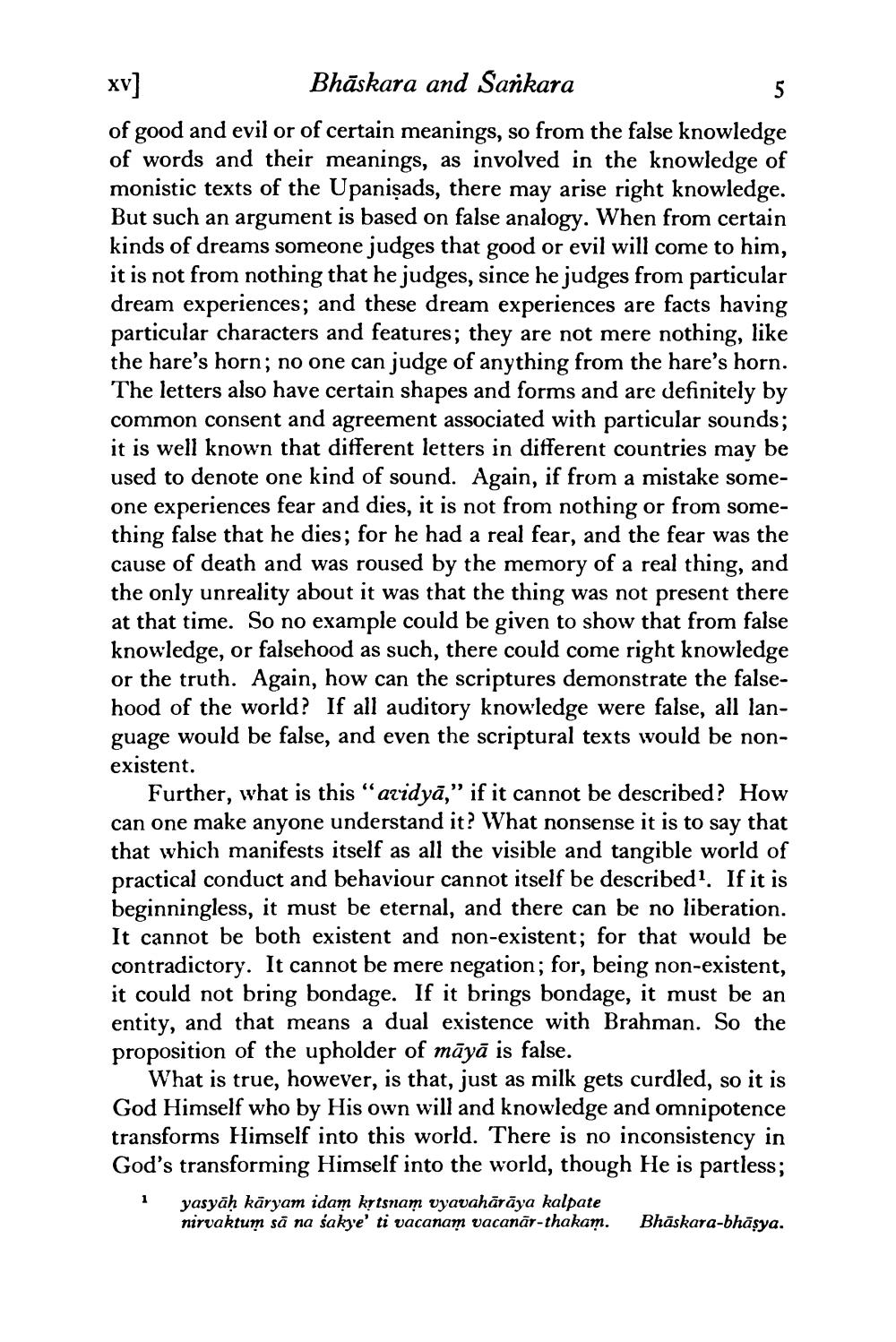________________
Bhāskara and Sankara of good and evil or of certain meanings, so from the false knowledge of words and their meanings, as involved in the knowledge of monistic texts of the Upanişads, there may arise right knowledge. But such an argument is based on false analogy. When from certain kinds of dreams someone judges that good or evil will come to him, it is not from nothing that he judges, since he judges from particular dream experiences; and these dream experiences are facts having particular characters and features; they are not mere nothing, like the hare's horn; no one can judge of anything from the hare's horn. The letters also have certain shapes and forms and are definitely by common consent and agreement associated with particular sounds; it is well known that different letters in different countries may be used to denote one kind of sound. Again, if from a mistake someone experiences fear and dies, it is not from nothing or from something false that he dies; for he had a real fear, and the fear was the cause of death and was roused by the memory of a real thing, and the only unreality about it was that the thing was not present there at that time. So no example could be given to show that from false knowledge, or falsehood as such, there could come right knowledge or the truth. Again, how can the scriptures demonstrate the falsehood of the world? If all auditory knowledge were false, all language would be false, and even the scriptural texts would be nonexistent.
Further, what is this "avidyā,” if it cannot be described? How can one make anyone understand it? What nonsense it is to say that that which manifests itself as all the visible and tangible world of practical conduct and behaviour cannot itself be described? If it is beginningless, it must be eternal, and there can be no liberation. It cannot be both existent and non-existent; for that would be contradictory. It cannot be mere negation; for, being non-existent, it could not bring bondage. If it brings bondage, it must be an entity, and that means a dual existence with Brahman. So the proposition of the upholder of māyā is false.
What is true, however, is that, just as milk gets curdled, so it is God Himself who by His own will and knowledge and omnipotence transforms Himself into this world. There is no inconsistency in God's transforming Himself into the world, though He is partless;
yasyāḥ kāryam idam krisnam vyavahārāya kalpate nirvaktum să na sakye' ti vacanam vacanar-thakam. Bhāskara-bhāsya.




